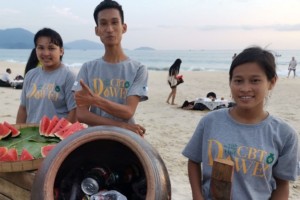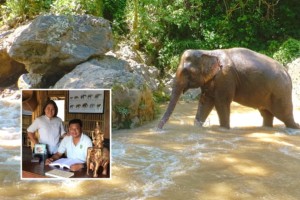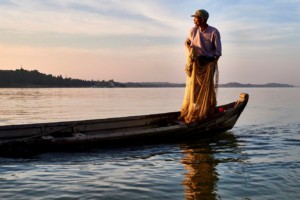Tourism in crisis: How local staff supported their communities in Myanmar

In this “Good Tourism” Insight, Nia Klatte of Khiri Reach, the charitable arm of “GT” Partner Khiri Travel, shares how her organisation’s Myanmar-based teams stepped up to support host communities during the COVID-related travel & tourism closures.
This pandemic has shown us again how big our responsibility is for the people with whom we work; not only our full-time staff, but also our freelance guides and drivers, as well as the locally-owned businesses, NGOs, and communities we visit regularly.
Without being able to send our clients to a destination and without being able to provide income for our partners, they are the ones who struggle the most during a tourism downturn. Our products and services really depend on local communities and the local guides who make our tours what they are. It’s very difficult for us to see them suffer right now. Unfortunately, the support systems from local governments are very limited in all of our destinations, especially for informal and freelance workers.
When Myanmar’s borders were shut and we had no more clients on the ground, our teams there came together to discuss the situation. We brainstormed ideas that would keep our staff busy, give them something to wake up to every morning and to be proud of, and that would help us support all the Burmese with whom we have good relationships. We chose two ideas and made them priority projects.
The first project is called Honey Bee Arts & Crafts. In many of the Burmese communities we visit with our clients, we find extremely talented artisans. They produce beautiful crafts and souvenirs that showcase the local culture and use traditional materials, but without any tourists visiting they don’t have any source of income. So, instead of bringing the tourists to the products, our idea was to bring the products to the tourists. Our team put together an online platform, which has provided an opportunity for our local partners to sell their products worldwide. (All their products are made with sustainable and traditional materials, such as bamboo, papier-mâché, recycled plastic, and coconuts.)
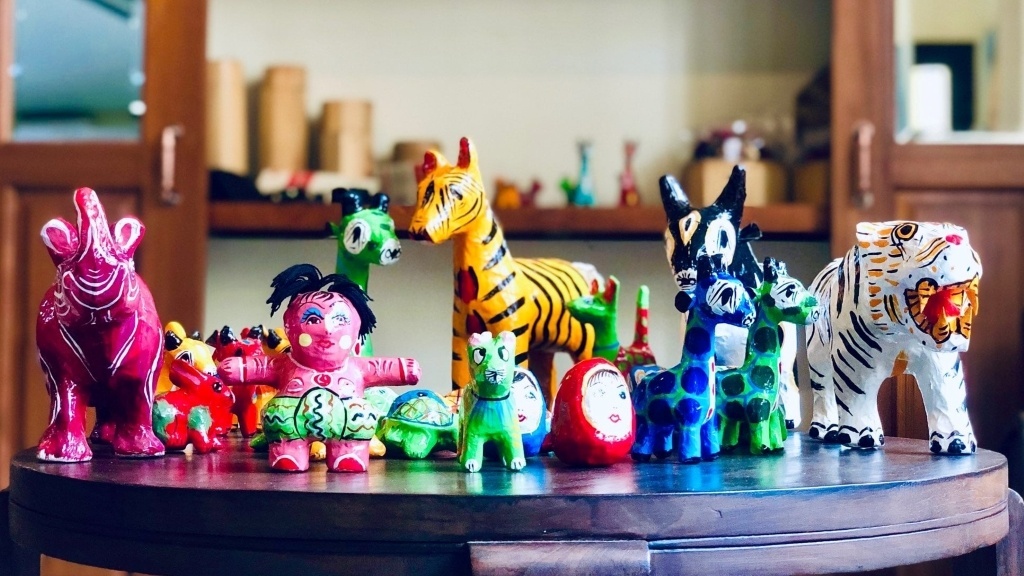
The second project is called Ku Mel, which means “We will help”. When brainstorming ideas, our staff in Myanmar recognised the importance of volunteering in the country. Even in good times, many local projects and NGOs can’t afford to hire full-time staff or pay for the expertise they need. At the same time, many young Burmese are looking to gain work experience and develop their skills, especially in areas where educational programs might be lacking.
KuMel is a free platform we developed to connect organisations and volunteers. The Khiri team works with many local NGOs and communities, so collectively we have a vast network of partners and a good understanding of their needs. Our team used that knowledge to build a database of projects, which is shared with anyone enthusiastic about helping them out. There’s already a huge selection of projects available in many fields including waste management, tree planting, animal shelters, a mobile soup kitchen, and projects supporting the elderly and people with disabilities.
Both Honey Bee and Ku Mel have found a way to create additional income and deliver much-needed support to Burmese communities in need. Our local teams have worked extremely hard on the execution of these projects. In addition to helping their communities, many team members have learned a lot and developed their own skills, such as how to set up a website or start a fundraising campaign. They have taken on a sense of ownership in the projects and are extremely proud of what they have achieved and how they have been able to support their home country.
What do you think? Do you have a similar experience supporting communities in times of tourism in crisis? Share a short story about it in the comments below. Or write a deeper “GT” Insight. The “Good Tourism” Blog welcomes diversity of opinion about our travel & tourism industry because travel & tourism is everyone’s business.
Featured image (top of post): Khiri Travel’s Ku Mel project team members join together for a common cause. Image supplied by author.
About the author
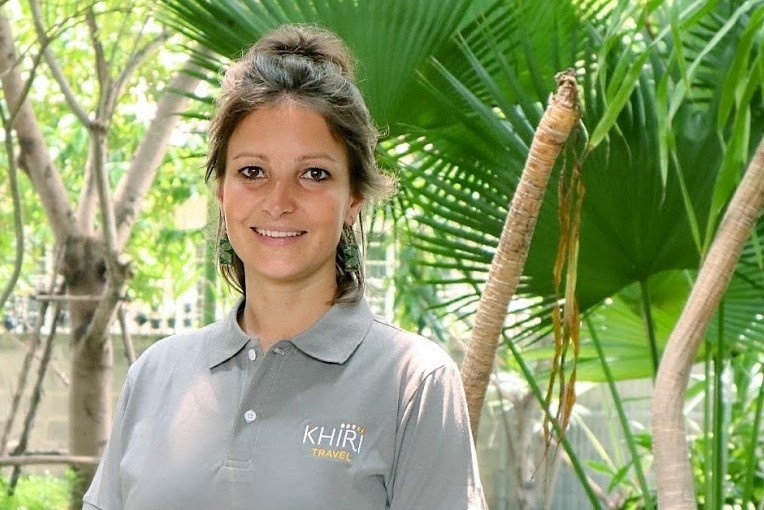
Based in Ho Chi Minh City, Vietnam, Nia Klatte is both regional sustainability coordinator for “GT” Partner Khiri Travel and executive director of Khiri Reach, its charitable arm.
A sustainable and responsible tourism specialist with a Master’s in Tourism & Social Anthropology from the University of Brighton, Nia has worked in Southeast Asia since 2013, including as sustainability manager in Thailand, Laos, and Vietnam for EXO, before taking on the role as regional sustainability coordinator at Khiri Travel in 2019. Within a year she had helped Khiri become the first DMC to be Travelife-certified in all its offices.
Nia reckons sustainability is no longer a luxury, it’s a necessity, and says she is committed to the triple-bottom-line: People, Planet, and Profit. Besides her engagement in various sustainability working groups across Southeast Asia, Nia is one of the founding members of IMPACT Vietnam, a network of responsible tour operators promoting sustainable tourism development.



